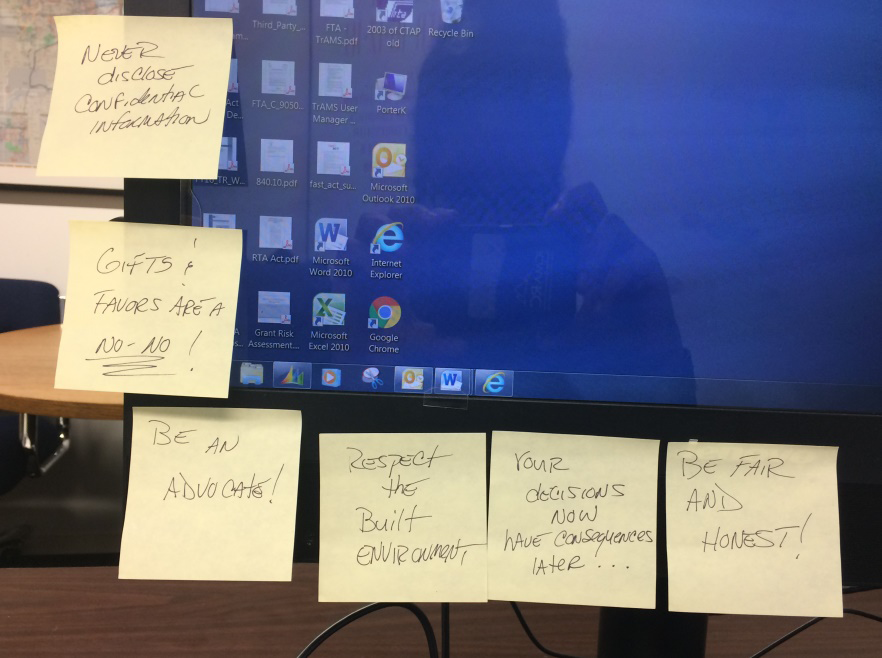Ethics Aren’t Just for Jane Doe, AICP

Did you know that non-AICP planners and planning advocates are expected to follow a code of ethical behavior? It's true.
Adopted in 1992, the Ethical Principles in Planning expresses the importance of "ethical conduct for all who participate in the process of planning as advisors, advocates, and decision-makers." Therefore, participants in the planning process must examine their values as well as the ethical guidelines that fit their current role as planners, elected officials, and stakeholders.
Use Post-it Notes Wisely
The planning process can sometimes become a battlefield — especially when difficult, large-scale projects are involved with expectations of a certain outcome. During these contentious times, it is easy for the elected or appointed official to forget to throw a yellow scarf — denoting "flag on the play" — to ensure impartiality and decency.
So, how do you remain ethical when planning resources are scarce? Or, how do you remain ethical when you're expected to appease the mayor, city manager, and the angry resident around the corner? Even with all of the technology available at my fingertips, Post-it Notes are what work best for me:

These small, sticky squares of paper help me to keep in mind the basic values for dealing with a variety of pressures and ethical issues that arise when working in a planning office. Some of my recent notes have focused on such things as:
- How the acceptance of gifts and favors are a "no, no"
- The need to respect the built environment
- The importance of being an advocate
- Understanding that you should not disclose confidential information
- Being mindful of the implications of your decisions
- How your current decisions have consequences later
Promote Ethical Values Through Conversation
I also believe in utilizing subliminal messaging to help those I work with embrace ethical values.
To spark a conversation about your ethical beliefs, frame a copy of the Ethical Principles in Planning in your work area. When visitors ask the significance of the document being framed, you've got them. My own framed copy of the AICP Code of Ethics and Professional Conduct also has generated many discussions in my office.
As planners, we are constant learners. The American Planning Association's website contains a wealth of information that can further guide you. Its "Ethics in Planning" webpage provides access to annual reports on misconduct case activity and requests for advisory opinions, as well as instructions on how to seek informal advice from AICP's Ethics Officer. Some publications guide citizens, planners, and board members — all of which are essential reads.
In practice, learning and navigating ethical situations should be a part of a planner's arsenal of tools. While the road can be long, discussions painful, and clarity of vision elusive, there are a variety of available resources. Remember, the responsibility to uphold honesty, fair-mindedness, and ethical integrity doesn't only apply to Jane Doe, AICP.
Top image: Thinkstock photo.


